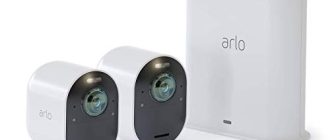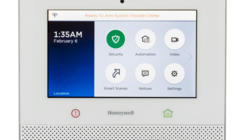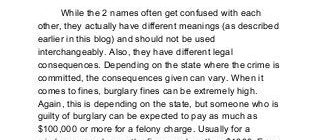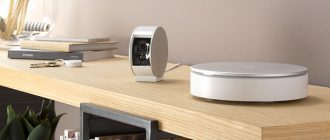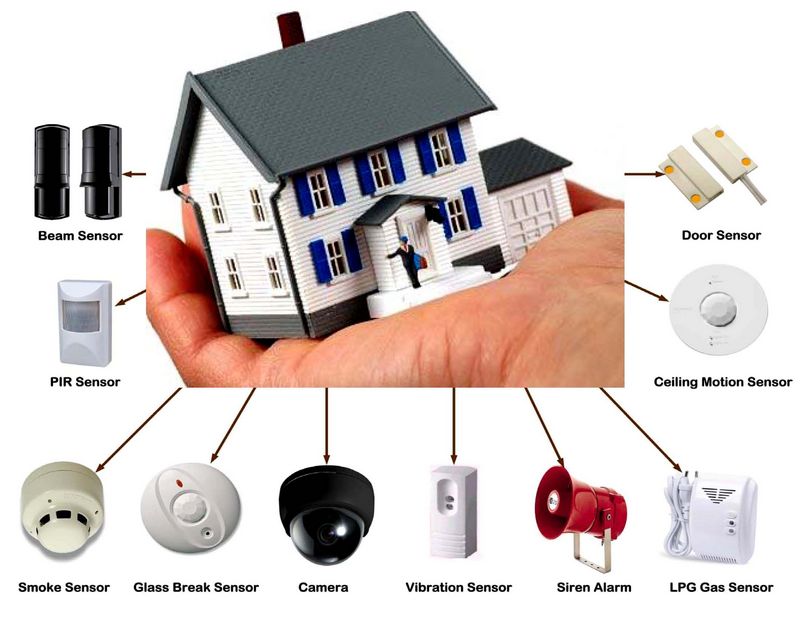
How to choose a home security system
In today’s world, home security is a top concern for many homeowners. With the increasing number of thefts and break-ins, it has become more important than ever to protect our homes and loved ones. But how do you choose the best home security system?
Firstly, it is essential to understand the different types of security systems available. From monitored systems that are linked to a professional monitoring center, to self-monitoring systems that send you alerts directly to your phone, there are various options to consider. You should choose a system that fits your needs and budget.
Secondly, consider the features that are important to you. Do you want cameras that can be accessed remotely? Or do you prefer motion sensors that detect any movement in and around your home? Think about the unique needs of your home and choose a system that offers the features you require.
Additionally, it is crucial to research and compare different security system providers. Read reviews, ask for recommendations from family and friends, and seek out reputable companies with a proven track record. Look for providers that offer excellent customer support, reliable equipment, and competitive pricing.
By taking these tips into consideration, you can choose the best home security system that will give you peace of mind and keep your home safe and secure.
Tips for Choosing the Right Home Security System
When it comes to ensuring the safety and security of your home, choosing the right security system is crucial. With so many options available on the market, it can be overwhelming to decide which system is the best fit for your needs. Here are some tips to help you choose the perfect home security system:
| Home Evaluation | Start by evaluating your home and its specific security needs. Consider factors such as the size of your home, the number of entry points, and any vulnerable areas that need extra protection. |
| Research Providers | Do thorough research on different security system providers. Look for reputable companies with positive customer reviews and a track record of providing reliable and effective systems. |
| Consider your Budget | Set a budget for your home security system and stick to it. Determine how much you are willing to spend on equipment, installation, and monthly monitoring fees. |
| Types of Systems | There are various types of home security systems available, such as wireless systems, hardwired systems, and do-it-yourself systems. Consider the pros and cons of each type to find the one that best suits your needs. |
| Monitoring Options | Decide whether you want professional monitoring or self-monitoring for your security system. Professional monitoring involves a monitoring center that will alert emergency services in case of a break-in or other emergency, while self-monitoring allows you to monitor your home through your smartphone or computer. |
| Additional Features | Consider any additional features that you may want in your home security system, such as surveillance cameras, motion sensors, or smart home integration. These features can enhance the overall security of your home. |
| Installation | Consider whether you want to install the security system yourself or hire a professional installation service. Some systems are easier to install than others, so factor in your comfort level and skills when making this decision. |
| Contract Terms | If you choose a security system with professional monitoring, carefully review the contract terms and conditions. Pay attention to the length of the contract, cancellation policies, and any hidden fees. |
By following these tips, you can make an informed decision and choose the right home security system to protect your loved ones and valuables.
Prioritize Your Needs
When choosing a home security system, it’s important to prioritize your needs. Consider what aspects of security are most important to you and your family. Do you live in a high-crime area? Are you often away from home and need remote access to your security system? How many entry points and rooms in your home do you want to monitor?
By answering these questions, you can determine the specific features and capabilities you need in a home security system. Making a list of your priorities will help guide your decision-making process and ensure that you choose a system that meets your unique requirements.
- Consider your location and the crime rate in your area.
- Think about whether you need a system with remote access.
- Determine how many entry points and rooms you want to monitor.
- Take budget into consideration.
By prioritizing your needs, you can make a more informed decision when choosing a home security system, ultimately giving you peace of mind and the protection you desire.
Assess Your Home’s Vulnerabilities
When it comes to choosing the best home security system, it is important to assess your home’s vulnerabilities. Understanding the weak points in your home’s security will help you determine the type of system that will best protect your property.
Here are some tips on how to assess your home’s vulnerabilities:
| Security Area | How to Assess |
| Doors | Check the quality of the locks on all exterior doors. Are they sturdy and secure? Are there any signs of wear or damage? |
| Windows | Inspect the windows to see if they have functioning locks. Are there any windows that are easy to access from the outside? |
| Garage | Ensure that your garage is secure. Do you have a solid door with a lock? Is there a window in the garage that could potentially be broken into? |
| Exterior Lighting | Check the lighting around your home. Are there any dark areas that could provide cover for intruders? |
| Landscaping | Assess your landscaping. Are there any shrubs or trees near windows that could be used as hiding spots? |
| Security Cameras | Consider installing security cameras to monitor the exterior of your home. Are there any blind spots that need to be covered? |
| Alarm Systems | Evaluate whether or not you need an alarm system. Are there any areas of your home that are particularly vulnerable? |
By assessing your home’s vulnerabilities, you can make a more informed decision when choosing the best home security system for your needs. Remember to consider both the strengths and weaknesses of your current security measures to ensure optimal protection for your home.
Research Different Systems
When it comes to choosing a home security system, it is important to research and compare different options available in the market. This will help you make an informed decision and choose the system that best fits your needs.
Start by understanding the different types of security systems available, such as wired or wireless systems, monitored or unmonitored systems, and DIY or professional installation. Each type has its own advantages and disadvantages, so it’s important to consider your specific requirements and preferences.
Next, read reviews and ratings of different security systems from reputable sources. This will give you an idea of the system’s performance, reliability, and customer satisfaction. Pay attention to any recurring complaints or issues mentioned in the reviews, as these could be indicators of potential problems.
Additionally, consider the features and capabilities of each system. Determine what kind of security features are important to you, such as video surveillance, motion sensors, door and window sensors, and remote access. Think about how easy it is to use and operate the system, especially if you have family members who are not tech-savvy.
Lastly, compare the prices and packages offered by different security system providers. Take into account the upfront costs, monthly fees, and any additional costs for equipment, installation, or maintenance. Remember that the cheapest option may not always be the best, so consider the overall value and quality of the system.
By thoroughly researching different home security systems and weighing the pros and cons, you can choose the system that best meets your security needs and provides you with peace of mind.
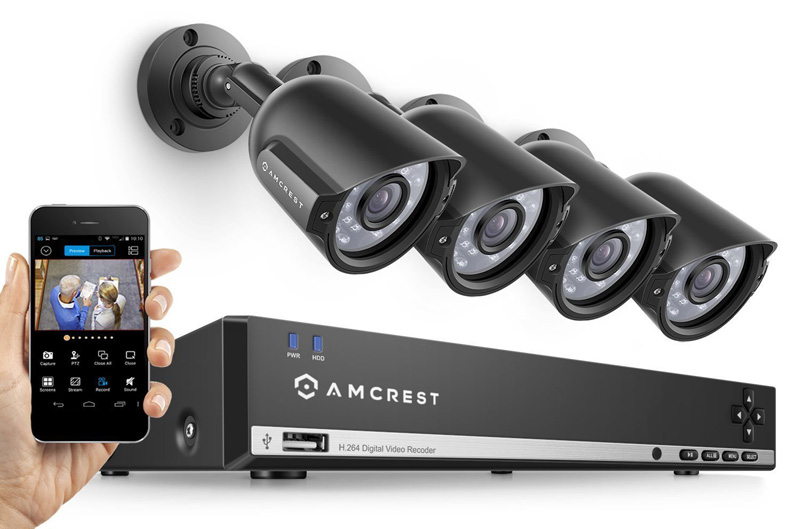
Consider Professional Monitoring
When choosing a home security system, one important factor to consider is whether or not you want professional monitoring. Professional monitoring involves having a third-party security company monitor your system and respond to any alarms or emergencies.
There are several advantages to choosing professional monitoring for your home security system. First and foremost, it provides round-the-clock monitoring of your property. This means that even when you are away from home or asleep, someone is always keeping an eye on your security system and ready to take action if needed.
Professional monitoring also ensures a quicker response time in case of an emergency. When an alarm is triggered, the monitoring company can immediately contact you, emergency services, or even dispatch their own security personnel to your home. This rapid response can help minimize damage and increase the chances of apprehending any intruders.
In addition, professional monitoring provides an extra layer of expertise. Security companies have trained professionals who are experienced in handling security systems and emergencies. They can offer valuable advice on optimizing your system and ensuring its effectiveness.
However, it is worth noting that professional monitoring typically comes with a monthly fee. This fee covers the cost of the monitoring service, as well as any necessary maintenance or upgrades to your security system. While this is an additional expense, many homeowners find the peace of mind and added security well worth the cost.
| Round-the-clock monitoring |
| Quicker response time |
| Expertise and advice |
Evaluate the Quality of Equipment
When it comes to choosing a home security system, it’s important to carefully evaluate the quality of the equipment being offered. The security of your home is dependent on the reliability and effectiveness of the system you choose, so it’s crucial to understand how to assess the quality of the equipment.
Here are some factors to consider when evaluating the quality of home security equipment:
- Technology and Features: Look for systems that offer the latest security technology and features. This could include things like motion sensors, video surveillance cameras, and smartphone integration. Make sure the equipment meets your specific security needs.
- Reliability: Check user reviews and ratings to determine the reliability of the equipment. Look for systems that have a reputation for being dependable and resistant to tampering or malfunctioning.
- Ease of Use: Consider how user-friendly the equipment is. Look for systems that are easy to install and operate. Avoid complex systems that may require professional installation or ongoing maintenance.
- Compatibility: If you already have existing security devices, such as smoke detectors or door/window sensors, check if the equipment is compatible with them. This will save you from having to replace or upgrade your current devices.
- Warranty: Look for equipment that comes with a warranty. A good warranty demonstrates that the manufacturer stands behind the quality of their product and is willing to support customers if any issues arise.
By carefully evaluating the quality of home security equipment, you can ensure that the system you choose will effectively protect your home and provide you with peace of mind.
Determine the Installation Process
When choosing a home security system, it is important to consider how the installation process works. There are two main options: professional installation or do-it-yourself (DIY) installation.
If you choose professional installation, a team of experts will come to your home and install the security system for you. This can be a convenient option for those who are not tech-savvy or do not have the time to install the system themselves. However, professional installation usually comes at an additional cost.
On the other hand, DIY installation allows you to install the security system on your own. Most security systems that offer DIY installation come with easy-to-follow instructions and video tutorials. This can be a more cost-effective option, as you won’t have to pay for professional installation. However, it may require some technical skills and extra time for the installation process.
Before making a decision, consider your own abilities and preferences. If you are comfortable with technology and enjoy tackling DIY projects, then DIY installation may be the right choice for you. If you prefer a hassle-free experience and are willing to pay for professional installation, then that option may be more suitable. Whatever you choose, make sure to thoroughly research the installation process of the home security systems you are considering, and choose the one that best fits your needs.
Check for Mobile App Functionality
When considering a home security system, it is important to check if it comes with a mobile app. A mobile app provides you with the convenience and flexibility to monitor your home security system from anywhere, at any time, using your smartphone or tablet.
With a mobile app, you can easily arm and disarm your security system remotely, receive instant alerts and notifications, and view live video footage from your security cameras. This allows you to stay connected to your home and have peace of mind knowing that you can always keep an eye on what’s happening.
When evaluating the mobile app functionality, consider the features that are available. Look for features such as geofencing, which allows the system to automatically arm or disarm when you leave or arrive at home. Also, check if the app offers customizable alerts, so you can receive notifications for specific events such as motion detection or door/window opening.
Additionally, make sure the mobile app is user-friendly and intuitive. It should have a well-designed interface that is easy to navigate and understand. Look for an app that offers a range of controls and settings, allowing you to customize and personalize your home security system to your preferences.
Having a mobile app that is compatible with your home security system is an essential feature to consider. It provides an added layer of convenience and control, allowing you to enhance the security of your home while on the go.
Look for Integration with Other Smart Devices
When choosing a home security system, it’s important to consider how well it integrates with other smart devices in your home. Integration can make your security system more efficient and convenient, allowing it to work seamlessly with your other devices.
One key aspect to consider is compatibility with other smart home devices, such as smart locks, smart thermostats, and smart lighting. Having integration with these devices allows you to control them through the same system that manages your home security. For example, you can set up a routine that automatically locks your doors, turns off your lights, and adjusts your thermostat when you arm your security system before leaving the house.
Integration with other smart devices also enables you to receive more detailed alerts and notifications. For instance, if your security system detects a break-in, it can automatically send a notification to your smartphone and simultaneously turn on all lights in the house to deter the intruder.
Furthermore, integration with other smart devices can enhance the functionality of your home security system. For example, you can use your security system’s motion sensors to trigger specific actions in other devices. If a motion sensor detects movement near your front door, you can program it to turn on your porch lights or start recording video footage, providing an additional layer of security.
In conclusion, when selecting a home security system, be sure to consider how well it integrates with other smart devices. Integration with devices such as smart locks, thermostats, and lighting can enhance the efficiency and functionality of your security system.
Consider Customer Support and Warranties
When it comes to choosing a home security system, it is important to consider customer support and warranties. A reliable customer support system is crucial in case you run into any issues or have questions about your security system. Look for a company that offers 24/7 customer support, so you can have peace of mind knowing that help is just a phone call away.
In addition to customer support, it is also essential to consider the warranties offered by the security system provider. Warranties can provide protection and reassurance in case of any malfunctions or defects in the system. Make sure to carefully review the terms and conditions of the warranty to understand what is covered and for how long.
Choosing a home security system is an important decision, and considering customer support and warranties can help ensure that you choose the best system for your needs. By selecting a system with reliable customer support and a comprehensive warranty, you can have confidence in the security and protection of your home.
Read Reviews and Testimonials
When choosing a home security system, it is important to do your research. One of the best ways to get an idea of how well a system works is by reading reviews and testimonials from others who have used it.
Reviews and testimonials can provide valuable insights into the pros and cons of different security systems. They can give you an idea of how easy the system is to set up and use, how reliable it is, and how well it performs in real-life situations.
By reading reviews and testimonials, you can learn from the experiences of others and make a more informed decision about which system to choose for your home security needs. Look for reviews that provide specific details about the features and performance of the system, rather than generic comments.
It is also a good idea to read reviews from reputable sources, such as consumer review websites or trusted technology blogs. These sources often provide unbiased and reliable information that can help you make a well-informed decision.
Tip: Don’t just rely on positive reviews, but also pay attention to any negative feedback. This can help you identify any potential issues or limitations of the system that you may need to consider.
Take the time to read reviews and testimonials when choosing a home security system. It is a valuable step in the process that can help you find the best system to keep your home secure.
Compare Pricing and Subscription Plans
When choosing a home security system, it is important to compare pricing and subscription plans. The cost of the system itself as well as any ongoing monthly fees can vary significantly depending on the provider and the level of security you require.
First, determine your budget and how much you are willing to spend on a home security system. Consider both the upfront cost of the equipment and the cost of monthly monitoring services. Some companies offer packages with different features and equipment options, so it’s important to compare prices and determine which one offers the best value for your money.
Next, consider the subscription plans offered by different providers. Some companies require you to sign a long-term contract, while others offer month-to-month options. Be sure to read the terms and conditions carefully before committing to a plan. Additionally, consider if there are any hidden fees or extra charges for additional equipment or services.
Another factor to consider is the level of monitoring and response provided by the security system. Some systems offer basic monitoring, where alerts are sent to your phone or email, while others offer professional monitoring services where a security company is alerted and can dispatch authorities if necessary. The level of monitoring you choose will affect the cost of your subscription plan.
Overall, compare pricing and subscription plans to ensure you are getting the best home security system for your needs and budget. Consider the upfront cost of the equipment, the monthly fees, and the level of monitoring provided. By doing your research and comparing options, you can choose a home security system that gives you the peace of mind you deserve.
Check for Compatibility with Existing Infrastructure
When choosing a home security system, it is important to consider its compatibility with your existing infrastructure. This includes determining how the system will integrate with your home’s current technology and infrastructure.
First, assess the type of system you currently have in place. If you already have a security system in your home, you need to determine if the new system will be compatible with it. This could involve checking if the hardware and software of the new system can be integrated with the existing system.
Next, consider the other devices and technology you have in your home. For example, if you have smart devices such as cameras, smart locks, or sensors, you need to ensure that the new security system can communicate with these devices. Compatibility between different devices is crucial for seamless operation and effective security.
Another factor to consider is the infrastructure of your home. This includes electrical wiring, internet connectivity, and any other systems or networks that are in place. Make sure the new security system can easily connect to these existing infrastructures without requiring significant modifications or additions.
Checking for compatibility with your existing infrastructure is essential to ensure the smooth integration and functionality of your home security system. By choosing a system that seamlessly integrates with your current technology and infrastructure, you can maximize the effectiveness of your security measures and enjoy peace of mind.
Verify the Reputation and Experience of the Provider
When it comes to choosing a home security system, it is important to carefully assess the reputation and experience of the provider. You want to ensure that you are entrusting the safety of your home to a reliable and trustworthy company.
Start by conducting thorough research on the provider. Look for reviews and ratings from other customers to get an idea of their reputation. A reputable provider will have positive feedback and high ratings indicating their professionalism and quality of service.
Additionally, consider the experience of the provider in the home security industry. An experienced company will have a better understanding of the latest technology and best practices in the field, ensuring that you receive the most effective and efficient security system for your home.
Remember to also check if the provider is licensed and certified. This will give you assurance that they adhere to strict standards and regulations, providing you with a reliable and compliant system.
By thoroughly verifying the reputation and experience of the provider, you can have peace of mind knowing that you have chosen a trustworthy partner to protect your home and loved ones.
Ensure Easy System Expansion
When choosing a home security system, it is important to consider how easily it can be expanded in the future. As your home and security needs may change over time, you want to choose a system that can easily grow with you.
When evaluating different systems, ask the provider about their expansion options. Some key questions to consider:
- Can the system accommodate additional security devices? Determine if the system has the capability to add more sensors, cameras, or other security devices as needed.
- Is the system compatible with third-party integration? Check if the system can integrate with other smart home devices or security platforms, which provides more flexibility for future expansions.
- What is the process for adding or upgrading components? Understand how easy it is to install new components or upgrade existing ones. Ideally, the process should be simple and user-friendly.
By ensuring easy system expansion, you can have peace of mind knowing that your home security system can adapt and grow along with your changing needs.
Consider Any Special Requirements or Features You Need
When choosing a home security system, it is important to consider any special requirements or features that you may need to meet your specific security needs. Every home is unique, and understanding your specific requirements will help you choose the best system.
First, think about the size and layout of your home. If you have a large property, you may need a system with multiple cameras to cover all areas. Additionally, if you have multiple entry points, such as doors, windows, or a garage, make sure the system you choose can secure all of them.
If you have pets, consider a system that has pet-friendly motion sensors. This will prevent false alarms caused by your furry friends. Some systems also offer pet immune sensors that can differentiate between your pet and an intruder.
Another important consideration is whether you want a professionally monitored system or a do-it-yourself (DIY) system. Professionally monitored systems provide 24/7 monitoring and will contact the authorities in case of an emergency. DIY systems, on the other hand, allow you to monitor the system yourself through a mobile app or a web portal.
Consider any additional features that may be important to you. Do you want to be able to control your security system through voice commands? Look for a system that is compatible with smart home assistants like Amazon Alexa or Google Assistant. If you want to be able to remotely view the security camera footage, make sure the system has a mobile app with live streaming capabilities.
In summary, when choosing a home security system, think about your specific requirements, such as the size and layout of your home, the presence of pets, and whether you want professional monitoring or a DIY system. Also, consider any additional features that may be important to you, such as voice control or remote viewing capabilities. By considering these factors, you can choose the best security system to meet your needs.
Q&A:
How do I choose the right home security system?
Choosing the right home security system can be a daunting task, but there are a few key factors to consider. First, assess your specific security needs and what you want the system to accomplish. Do you need video surveillance, motion sensors, or a doorbell camera? Next, consider the budget you have allocated for the system, as this will help you narrow down your options. It is also important to research reliable companies and read customer reviews to ensure you are choosing a reputable provider. Finally, consider any additional features or services that may be important to you, such as home automation integration or professional monitoring. By considering these factors and doing your research, you can choose the right home security system for your needs.
What are the different types of home security systems available?
There are several different types of home security systems available on the market today. The most common types include wireless, wired, and hybrid systems. Wireless systems use sensors and cameras that communicate wirelessly with a control panel, making them easy to install and expand. Wired systems, on the other hand, require hardwiring and tend to be more reliable but also more expensive to install. Hybrid systems combine both wireless and wired components, offering the best of both worlds. Additionally, there are self-monitored systems, where you receive alerts and monitor the system yourself, and professionally monitored systems, where a monitoring center keeps an eye on your home and contacts authorities if needed. Each type of system has its own advantages and disadvantages, so it is important to consider your specific needs and preferences before making a decision.
What features should I look for in a home security system?
When choosing a home security system, there are several features you should consider. First and foremost, make sure the system offers the basic essentials, such as door and window sensors, motion sensors, and an alarm. Additionally, look for a system that offers video surveillance capabilities, either through built-in cameras or the ability to add your own. This can be incredibly useful for deterring and identifying intruders. It is also important to consider home automation integration, which allows you to control your security system, as well as other connected devices, from a single app. Other features to look for may include smoke and carbon monoxide detectors, water leak sensors, and the ability to customize and expand the system as needed. By considering these features, you can choose a home security system that meets your specific needs.
Is it worth investing in a professionally monitored home security system?
Investing in a professionally monitored home security system can offer several advantages. With a professionally monitored system, a monitoring center keeps an eye on your home 24/7, alerting you and contacting the authorities in case of a break-in or other emergency. This can provide a higher level of security and peace of mind, especially if you are unable to monitor the system yourself at all times. Additionally, many insurance companies offer discounts on homeowners insurance for homes with professionally monitored security systems, which can help offset the cost. However, it is important to consider the cost of the monthly monitoring fees when deciding if a professionally monitored system is worth it for you. Ultimately, the decision will depend on your specific needs, budget, and level of comfort with self-monitoring.

